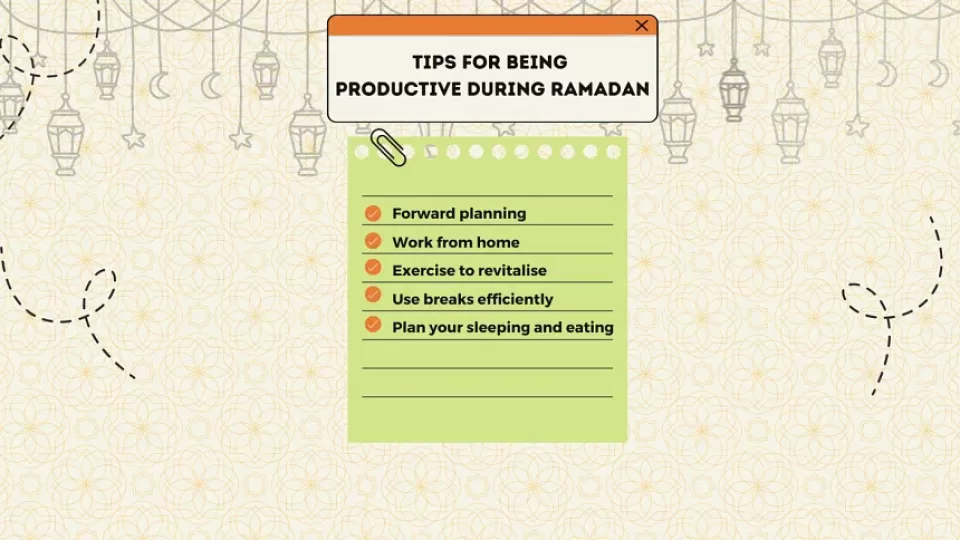April 4, 2023
DHAKA – Working during Ramadan can be challenging, with fatigue and the need for our bodies to adjust to changed working hours and an altered lifestyle. However, even during Ramadan, you can be productive at work and get the most out of your adjusted working hours.
Forward planning
Planning ahead always helps, even during usual work days, but more so during Ramadan. You can use a productivity planner for Ramadan work and follow that religiously so that you are aware of what exactly to do during your limited work time. This will help you maintain a schedule and make maximum utilisation of every hour during the day.
You should also organise your work as much as possible. It is advised to keep tasks that require more concentration or strategic thinking towards the beginning of the day as you are at your highest energy levels and have a fresh mind during that time.
Wrap up the other usual tasks during the second half of the day.
Work from home
If your workplace allows flexible working and work from home, utilise it as much as you can. The journey to and from the office especially with the deadly traffic situation during Ramadan causes hours and energy loss, which eventually causes a loss of productivity. Instead, occasionally work from home if your office allows.
This will result in longer working hours where you can complete more tasks and will eliminate the fatigue that travelling would cause. Try to schedule your week in a manner where you can work from home for one or two days by not keeping any in-person meetings or group work during those days.
Exercise to revitalise
Exercising during Ramadan may sound counterintuitive but it is actually more important to energise yourself during Ramadan. Exercise revitalises and rejuvenates you and replenishes your energy levels, which in effect makes you more productive at work. It also boosts metabolism and enhances your mood!
You can make time to exercise post-iftar when you are no longer fatigued and tired. If you would rather prefer to exercise during the day, then at morning before starting work is a great time. Just make sure to avoid heavy exercise during those hours and prioritise light ones.
Use breaks efficiently
During Ramadan, a few breaks such as snack and lunch breaks are eliminated. This makes for a good scope to rather use that time efficiently. You can use this time as focus time, to get more work done, or complete any ad-hoc tasks that arrive. You can also take a small walk during these times if you feel sluggish and low on energy levels, which will enable you to refocus.
It is most difficult for caffeine addicts to concentrate during the day without coffee and this hits hardest during your usual coffee breaks. Instead, you can splash your face with some water or have a chit-chat with your colleagues to make yourself get rid of lethargy and headache.
Plan your sleeping and eating
Your sleeping and eating patterns directly impact how productive you are at work. Lack of sleep will make you feel sluggish and weary at work. Rather, try to get proper sound sleep. Either you can sleep very early and start your day right after morning prayers, or you can follow a routine where you get enough sleep even with sehri break.
As for meals, avoid overeating and eat the right items. Overeating during iftar and sehri will cause indigestion and make you feel sick the next day at work. Rather, eat sufficiently and include things that are high in protein and boost energy levels. Avoid caffeine as it may affect your sleeping time and cause dehydration. Lastly and obviously, drink plenty of water during non-fasting hours.


